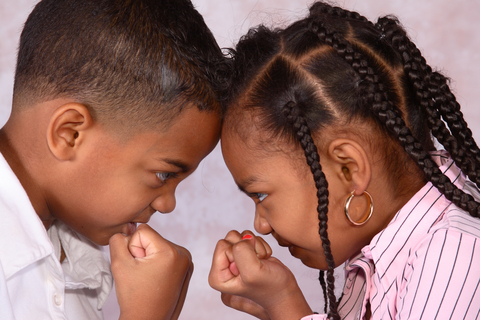A few things I learned at my cousin’s recent baby shower:
1. How to spell “pacifier.”
I didn’t realize I didn’t know how to spell pacifier until I looked at a word scramble containing all its letters and swore they didn’t spell anything.
2. It’s possible to host a gender neutral baby shower.
That is, for the guests, not necessarily the baby. My cousins—the pregnant one and her sisters who helped plan her shower—had word games and more athletic, physically challenging games. They invited a lot of men, and although only four showed up, we all still played and had a good time.
3. We are socialized to believe certain things about pregnancy.
There was a clue in a crossword puzzle about cravings, and everyone knew the answer was “pickles,†but I’ve never met a pregnant woman who actually wanted pickles (with her ice cream or anything else but a burger).
4. When teachable moments present themselves, we don’t always know how to teach the lesson we want taught, even if the lesson is crucial to the betterment of society.
I have an adorable two-year-old cousin. (BTW, you’ll hear “cousin†from me a lot. I don’t have any siblings.) We call her “Noodles.†She’s spunky, loud, comical and daring. In photos from her second birthday, her facial expressions include duck lips and an open-mouthed wink oddly reminiscent of Popeye. She’s been known to use the phrase “Shut the f— up,†with abandon and also exclaim, “Aww, he said a bad word!†upon hearing a pastor say “hell.†(At least, that’s what I think he said. That or maybe “ass.†I wasn’t there when this happened, and later I couldn’t get her to repeat the bad word she was referring to.) Like most toddlers, Noodles loves to play, and sometimes—likely because she has a 12-year-old brother—she loves to play rough. She’s been put in time out in daycare more than once for playing with other kids as if they were him. At the same time, my cousin is also quite feminine. She wore earrings and painted toenails before she could walk, and she likes to make herself “PRETTY!â€â€”caps because she’s always yelling—with fingernail polish just as much as she likes to wrestle.
So when I saw another toddler, this one a slightly older boy about half an inch taller than she is, slowly approach Noodles and hold out his hand for the diaper pail she played with gleefully after it had been used in one of the physical baby shower games, I wasn’t sure what would happen or how the room mostly full of black mothers would react to the scenario. Would my cousin yell, “Mine!†and hit the other toddler with the pail? Should she do that? What’s the proper reaction for a two-year-old to have? Sharing is a good lesson, but this was also one of those classic child incidents in which one child had no interest in the item until the other child did, so if she handed the pail over and moved on to something else, the battle would continue.
Also complicating this, in my head anyway, was the other child being a boy. If someone were to suggest, “Noodles, just give him the bucket,†she could learn very early to relinquish something she considered hers just because a male wanted it, and he could learn that just because he’s a male, he should get it. (As united as black feminists on Twitter tend to be, I could easily see a room full of black mothers inadvertently teaching this. And with my and my mom’s generations both heavily female, every time a cousin finds out it’s going to be a boy, I hear, “Good. We need more boys in the family.â€)
I know you think I’m doing too much, but I’m not. Children use gender stereotypes in their play—and adults feed them stereotypes—as early as two years old. I don’t know how the other kid is being raised, but Noodles alternates between wrestling and accessorizing. If the other kid isn’t getting any balance in the messaging he receives about how males should act, it could be a lesson he acts out later. A new U.N. study out of Asia asked men why they were forcing women to have sex. “And the most common answer by far was this sense of sexual entitlement; that men felt entitled to women’s bodies regardless of consent,†James Lang, one of the report’s authors, told NPR. He went on to say that “men who believed that men must be in control; that men must be tough and able to use violence … Those men that held those kinds of visions of manhood were much, much more likely to use violence.â€
Before you get upset, please understand that I’m not using a U.N. study on Asians to demonize an African American boy who may not yet even know anatomical differences between males and females. I’m saying perceptions of masculinity are formed early, and here was a chance to impress upon a girl and a boy what kind of women and men they should grow up to be. And what happened with that chance?
The other boy spotted Noodles playing on the floor with the pail. He left his seat and slowly approached her. She picked the bucket up and hugged it to her chest. He extended his hand. She backed up. He stepped forward. She hugged the bucket tighter and screamed, “No!†and backed up until she was in the corner with nowhere else to go. He snatched the pail out of her grip and walked away. Noodles burst into tears and ran into the arms of one of the few men at the party.
I took a private moment of silence for feminism’s defeat, and then heard a woman say to the boy, “Give it back!â€
It’s been more than a week since this happened, so I’m not 100 percent sure what happened next. I think the boy set the bucket down near Noodles but didn’t exactly give it back. I know she stopped crying, and I’m certain no apology was given or demanded by Noodles or the adults. We moved on to food and cake, and until I caught the NPR story on the rape perpetrators study, I figured this wasn’t worthy of a blog post. Now I’m back to believing I missed an opportunity, but I’m not sure how in that moment I could have taught the lessons I know I want every boy and girl to learn.



I think, “Give it back!” was adequate. He will internalize that, along with other messages he is surely getting along those lines, and work out for himself that women are not here for him to dominate. Noodles will internalize the episode and others, and work out that she does not have to give in. (Which she didn’t — and she trusted a man to comfort her. Both good things.)
Kids rarely respond to obvious “teachable moments.” More often, they absorb lifetimes’ worth of little messages and assemble those into their own philosophies, just like we did. It’s up to us to pay attention to what they’re assembling and try to help them maintain a balance.
**Nodding** Very good points, especially the “little messages” note. I notice more and more of mine every day, especially now that I’m studying feminism history.